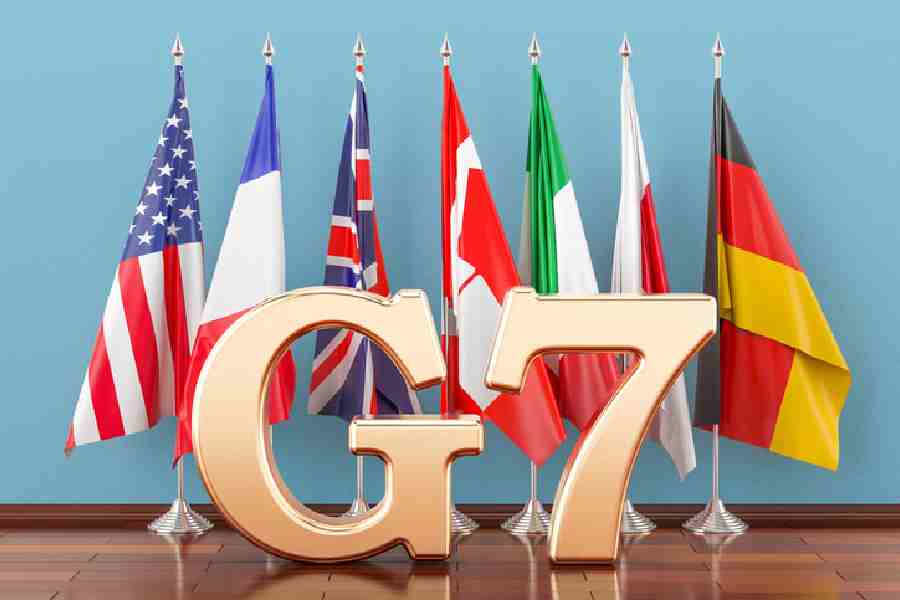Leaders of some of the world’s biggest economic powers arrive in the Canadian Rockies on Sunday for a Group of Seven summit, overshadowed by an escalating conflict between Israel and Iran and US President Donald Trump’s unresolved trade war with allies and rivals alike.
Israel’s strikes on Iran and Tehran’s retaliation, which appeared to catch many world leaders unawares, is the latest sign of a more volatile world as Trump seeks to withdraw the US from its role as world policeman.
Speaking on a flight to Canada to attend the summit, British Prime Minister Keir Starmer said he had discussed efforts to de-escalate the crisis with Trump and Israeli Prime Minister Benjamin Netanyahu, as well as other world leaders.
Britain is sending fighter jets and other military reinforcements to West Asia.
“We do have longstanding concerns about the nuclear programme Iran has. We do recognise Israel’s right to self-defence, but I’m absolutely clear that this needs to de-escalate. There is a huge risk of escalation for the region and more widely,” Starmer said, adding he expected “intense discussions” would continue at the summit.
As summit host, Canadian Prime Minister Mark Carney has decided to abandon the annual practice of issuing a joint statement, or communique, at the end of the meeting.
With other leaders wanting to talk to Trump in an effort to talk him out of imposing tariffs, the summit risks being a series of bilateral conversations rather than a show of unity.
Trump is the summit wild card. Looming over the meeting are his inflammatory threats to make Canada the 51st state and take over Greenland. French President Emmanuel Macron arrived in Greenland on Sunday for a highly symbolic stop on his way to Canada, meeting the Arctic territory’s leader and Denmark’s Prime Minister aboard a Danish helicopter carrier.
Macron’s office said the trip to Greenland is a reminder that Paris supports principles of sovereignty, territorial integrity and the inviolability of borders as enshrined in the UN charter.
Macron, who is one of the very few leaders to have known Trump during his first term, was the first European leader to visit the White House after Trump took office, emerging unscathed from the Oval Office encounter.
But despite the two leaders’ sporadic bromance, Macron’s approach to Trump has failed to bear major results, with France caught up in the President’s planned tariffs on the European Union.
Nor did it bring any US security guarantees for Ukraine despite Macron’s efforts, together with Starmer, to build a coalition of nations that could deploy forces after any ceasefire with Russia, with the hope it would convince the Trump administration to provide backup.
Trump is scheduled to arrive late on Sunday in Kananaskis, Alberta.
Peter Boehm, Canada’s sherpa of the 2018 G7 summit in Quebec and veteran of six G7 summits, expects the heads of state to pivot discussion to devote more time to the war.
“Leaders can accommodate a discussion, perhaps even a statement,” Boehm said. “The foreign policy agenda has become much larger with this.”
Leaders who are not part of the G7 but have been invited to the summit by Carney include the heads of state of India, Ukraine, Brazil, South Africa, South Korea, Australia, Mexico and the UAE. Avoiding tariffs will continue to be top of mind.










